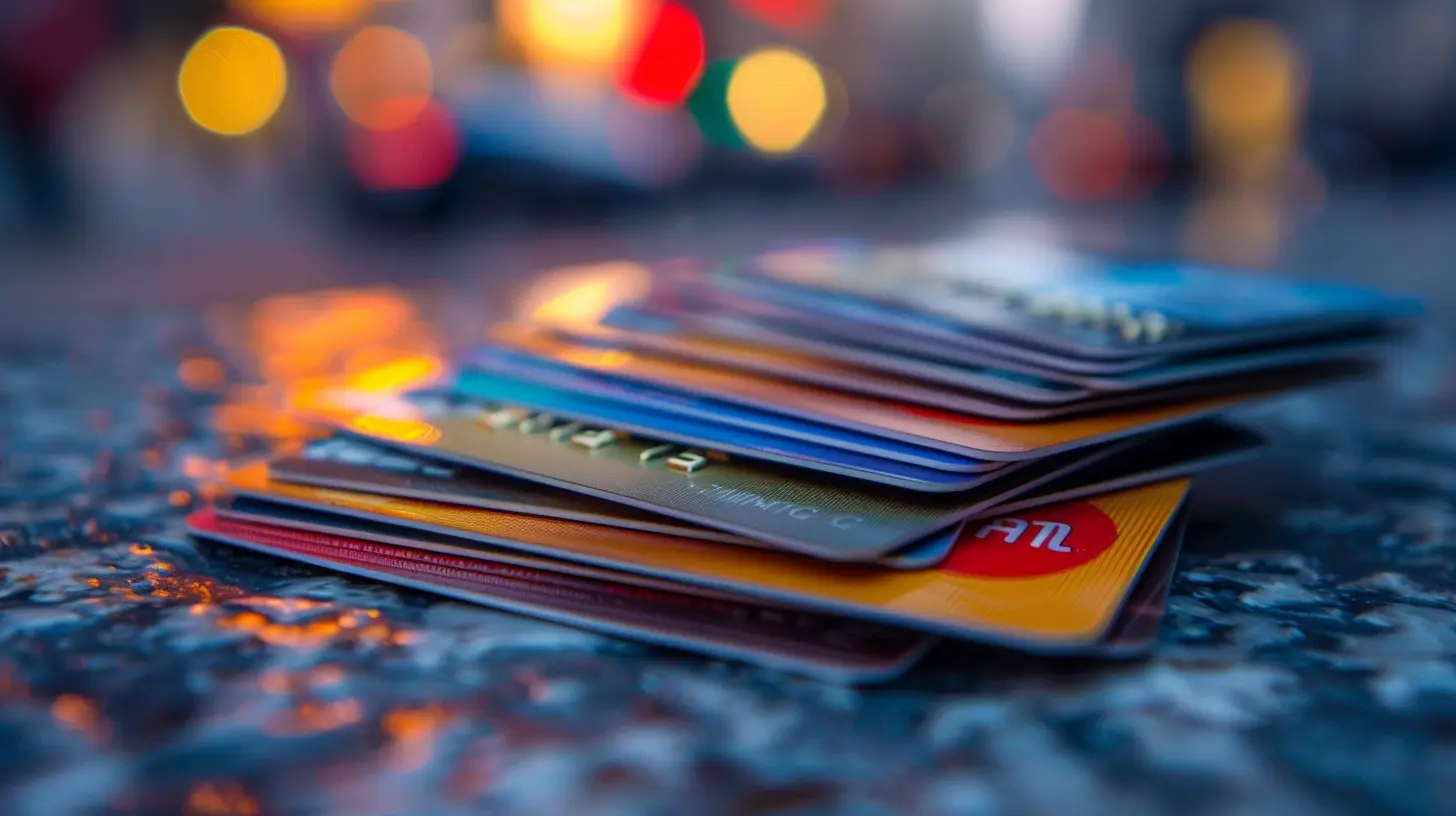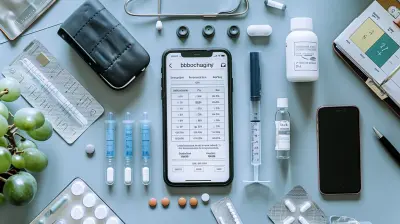How to Rebuild Credit After a Debt Settlement
17 June 2025
So, you've just settled your debts. First of all—congratulations! That’s a big step toward financial freedom. But now comes the question: how can you rebuild your credit after a debt settlement? Don’t worry, it’s not as scary as it sounds. With the right game plan, you can turn things around and boost your credit score faster than you think.
In this guide, we’ll break everything down step by step, in plain English—no fancy financial jargon here! Let’s get started. 
✨ Understanding the Impact of Debt Settlement on Your Credit
Before we dive into the recovery plan, let’s talk about how debt settlement actually affects your credit.When you settle a debt, you're basically paying less than the full amount you owed. While this saves you money, it also leaves a mark on your credit report, indicating that you didn’t pay back the full balance.
Here’s what happens:
✔️ Credit Score Drop – Your credit score may take a hit, especially if you had missed payments before the settlement.
✔️ Negative Marks on Your Credit Report – A settled debt usually stays on your credit report for seven years, but its impact lessens over time.
✔️ Harder to Get New Credit – Lenders might see you as risky after a settlement, making it tougher to qualify for loans and credit cards.
But don’t worry—this isn’t permanent! Your credit is repairable with the right steps. Let’s go over how to rebuild it. 
📌 1. Check Your Credit Report
Before anything else, you need to know where you stand. Your credit report is like a financial report card—it shows your past actions and gives you clues on how to move forward.✅ How to Get Your Credit Report
You’re entitled to one free credit report per year from each major bureau (Equifax, Experian, and TransUnion). Here’s how to get yours:1. Visit AnnualCreditReport.com (official site).
2. Request your credit reports from all three bureaus.
3. Review them carefully for mistakes.
🔍 What to Look For
- Errors – Incorrect late payments, wrong balances, or accounts that don’t belong to you.- Settled Accounts – Check that settled debts are marked correctly as “settled” rather than “unpaid.”
- Collection Accounts – Verify whether they’re accurate and check the reporting timeline.
If you spot errors, dispute them immediately with the credit bureau. 
💳 2. Get a Secured Credit Card
One of the easiest ways to rebuild your credit is by getting a secured credit card.What is a Secured Credit Card?
Think of it as a stepping stone—you deposit your own money as collateral, and the bank gives you a credit line usually equal to that deposit (e.g., $200 deposit = $200 credit limit).How It Helps Your Credit
- Reports positive payment history to credit bureaus.- Reinforces responsible credit use.
- Helps increase your credit score over time.
Pro Tip: Use the card for small, everyday purchases (like gas or subscriptions) and pay off the balance in full each month. 
🏦 3. Become an Authorized User
Want a quick way to boost your credit score? Ask a trusted friend or family member to add you as an authorized user on their credit card.When they make on-time payments, it reflects on your credit report too—giving your score a nice boost without you needing to do anything!
Just make sure:
- The account is in good standing (no late payments).
- The credit utilization is low (less than 30%).
- They actually trust you (since they’ll be responsible for any charges you make).
📈 4. Build a Positive Payment History
Your payment history makes up 35% of your credit score—so making on-time payments is crucial.Simple Ways to Ensure On-Time Payments
✅ Set up autopay for bills.✅ Use payment reminders on your phone.
✅ Pay early if possible—it reduces stress and ensures you never forget.
Even a few months of consistent on-time payments can start moving your score in the right direction.
💡 5. Keep Credit Utilization Low
Your credit utilization ratio is how much credit you're using compared to your total credit limit. The rule of thumb? Keep it below 30%.For example, if you have a $1,000 credit limit, don’t carry a balance of more than $300.
How to Lower Your Credit Utilization
✔️ Pay down balances quickly – Even making extra payments mid-month can help.✔️ Ask for a credit limit increase – Just make sure not to spend more if you get it!
✔️ Spread out purchases across multiple cards – This helps keep utilization lower on each account.
A low credit utilization ratio signals to lenders that you're responsible, helping boost your credit score fast.
🏠 6. Consider a Credit-Builder Loan
If credit cards aren’t an option yet, try a credit-builder loan.What is a Credit-Builder Loan?
It’s a small loan where instead of getting the money upfront, you make payments first. Once the loan is fully paid, the bank or credit union releases the funds to you.How It Helps
✔️ Builds a positive payment history.✔️ Improves your credit mix (which is another factor in your score).
✔️ Reports payments to credit bureaus, helping you rebuild your credit faster.
Check with local credit unions or online lenders to find these loans.
📉 7. Avoid New Debt (for Now)
While rebuilding credit, don’t take on unnecessary new debt. New loans and credit inquiries can lower your score, so avoid opening too many accounts at once.Good Debt vs. Bad Debt
✅ Good Debt – Things that increase your financial future, like student loans or a mortgage.❌ Bad Debt – High-interest loans, payday loans, or unnecessary credit card spending.
Stick to what you can manage comfortably while focusing on improving your credit score.
🔥 8. Be Patient & Stay Consistent
This one’s important—credit repair takes time. You won’t see a drastic change overnight, but if you stick to these habits, you’ll notice improvements within months.Track Your Progress
- Check your credit score regularly (but not obsessively—once a month is plenty).- Celebrate small wins (even a 10-point increase is a step in the right direction!).
- Stay committed—good money habits will pay off in the long run.
🎉 Final Thoughts
Rebuilding your credit after a debt settlement isn’t impossible—it just takes time, patience, and smart financial moves. By following these steps, you’ll not only improve your credit score but also develop strong financial habits that will benefit you for years to come.So start today, stay positive, and remember—your credit score doesn’t define you, but your actions do! You’ve got this.
all images in this post were generated using AI tools
Category:
Debt ManagementAuthor:

Angelica Montgomery
Discussion
rate this article
3 comments
Jude Soto
Rebuilding credit after a debt settlement? Think of it as fixing a credit puzzle—piece by piece, you’ll be whole again! 🧩✨
June 21, 2025 at 3:41 AM

Angelica Montgomery
Absolutely! Just like a puzzle, rebuilding credit takes time and patience, but every step brings you closer to a complete picture. 🧩
Lincoln Morris
Thank you for this insightful article! Rebuilding credit after a debt settlement can feel daunting, but your practical tips and encouragement are truly inspiring. It’s a reminder that progress is possible with patience and dedication. I’m ready to take the next steps towards financial recovery!
June 20, 2025 at 3:07 AM

Angelica Montgomery
Thank you for your kind words! I'm glad you found the article helpful. Wishing you the best on your journey to financial recovery!
Patience Powell
Credit rebuilding: like a phoenix with a spreadsheet!
June 17, 2025 at 3:30 AM

Angelica Montgomery
Absolutely! Just like a phoenix rises from the ashes, rebuilding credit requires careful planning and persistence—your spreadsheet is your roadmap to success!



